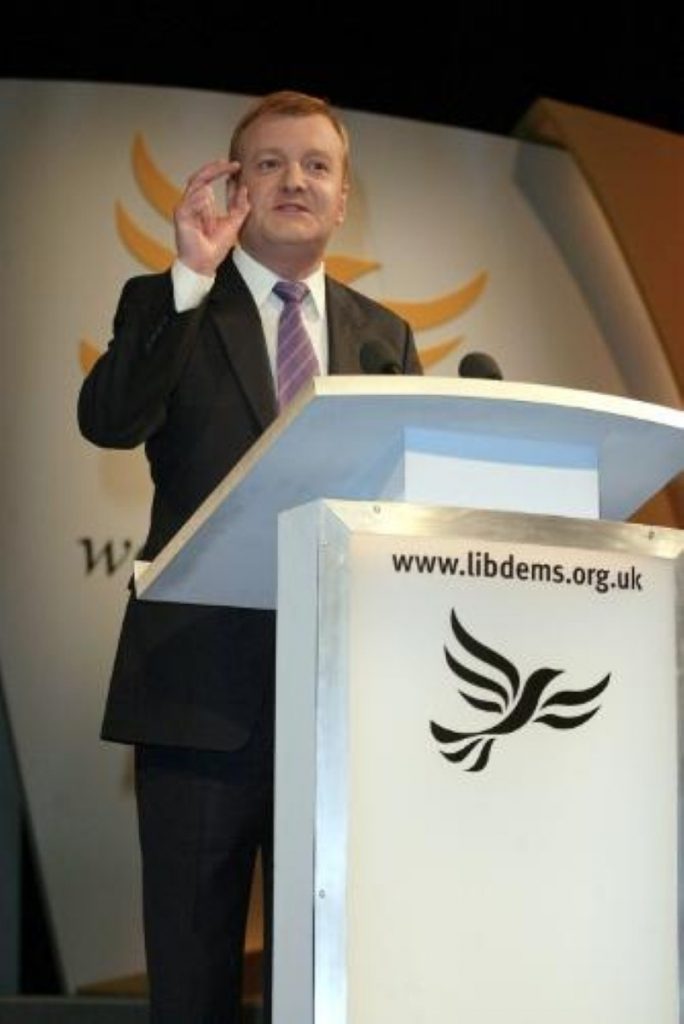Lib Dem conference round-up
With the Liberal Democrats’ annual conference now at an end, and the political focus now switching to Labour’s conference beginning this weekend, politics.co.uk takes a look at this year’s key moments.
Overall, delegates were in an upbeat and confident mood after their recent by-election successes, and opinion poll ratings hovering above 20 per cent.
The mood of optimism was especially notable at many of the fringe meetings that accompany the conference, where events were less “party political” than often before, with many delegates noting some good work done by Labour on social equality, but repeatedly asserting that much more needed to be done.
The thorny issue of a possible electoral pact with Labour was firmly laid to rest by Charles Kennedy in his end of conference speech, in which he vowed “no nods, no winks, no deals and no stitch-ups” before the next general election. The door, however, was left slightly ajar for some sort of agreement in the event of a hung parliament, as he pledged that the Lib Dems would work with others on common issues, such as Europe.


The Labour frontbench would have to change somewhat for that to occur, if Mark Oaten’s comments this week are anything to go by. He told a fringe meeting hosted by The Independent that he could “not stomach” being in a government that included the Home Secretary David Blunkett – presumably not only because they share the same portfolio!
The key message coming from the party leaders and strategists in general is that the party believes it will make significant gains at the next general election – with the potential date of May 5th being widely banded about – to usher in an era of genuine “three party politics”.
Many of the policies discussed had already been outlined in their pre-election manifesto, which was released before the conference. On Tuesday, the conference approved the manifesto and throughout the week fleshed out more details on the policies. According to Charles Kennedy, all of the polices build on the three key principles of “Freedom, Fairness, Trust”.
Vince Cable, the party’s treasury spokesman, was emphatic that despite cynicism from commentators that the party’s plans do add up. Key policies would be funded by a 50 pence tax band for those earning over £100,000 a year, and he estimated that scrapping the Government’s plans to introduce ID cards, scrapping child trust funds and closing departments like the DTI would lead to a saving of around £5 billion.
Environment
Norman Baker promised that a “green thread” would run through all of the party’s policies, so that the environment became a central concern rather than an add on. From next year, delegates agreed that all future conferences would be “carbon neutral” in impact.
Grey vote
The Liberal Democrats have a three-pronged approach to win over the grey vote, firstly a pledge to abolish council tax and replace it with a local income tax, secondly to fund free personal care for the elderly, and finally to raise the level of the basic state pension for the over 75s.
Education
For students, the Liberal Democrats pledged to abolish all tuition fees and top-up fees, reduce class sizes for the youngest children and act on red tape and bureaucracy.
Law and Order
Community punishments, which the leadership insisted would not be a “soft-option”, were much in vogue, with Mr Oaten suggesting the establishment of community panels whereby local people agree reparations for minor offences such as graffiti and anti-social behaviour.
The Lib Dems have also pledged to fund 10,000 more police officers and 20,000 more Community Support Officers.
The age of criminal responsibility would also be raised by two years to 12.
Health
The key element of the health policies announced was the move away from an NHS “sickness” service, to one which focuses on prevention. As such, health spokesman Paul Burstow suggested that healthy cookery lessons should be reintroduced into schools, and young people should do at least two hours of physical exercise a week at schools.
The so-called MOT proposals also extend into older age, with regular eye and dental checks.
Iraq
Iraq, as might be expected with Liberal Democrats’ opposition to the war, was a reasonably prominent issue. During Monday’s session it generated a number of memorable quotes, notably Shirley Williams’ swansong speech in which she branded it “the greatest diplomatic blunder since Suez.”
Charles Kennedy, in his final address, emphasised what he called a “principled” opposition to the war, and said that the final test for the Prime Minister’s policy would be the ballot box.












